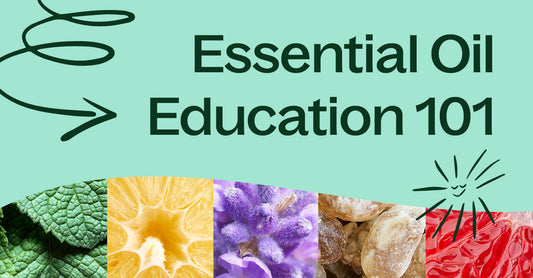By: Ellen Brenner, Certified Aromatherapist
Welcome to our journey into essential wellbeing. My intention is to share with you my learning about the mind/body/spirit connection and the impact it has on our health. We will discuss the power we have over our own optimal wellness with a focus on aromatherapy as a potent support in our natural health toolkit.
My offerings will come from what I have learned so far from some significant life experiences, work with some magnificent healers, and a formal education in holistic aromatherapy and the natural healing arts. I will not be writing from a place of “having arrived,” and “knowing it all,” but as a fellow traveler who may be one step ahead, 10 steps ahead, or even perhaps behind you with a different perspective. My hope is to inspire and empower you in your own healing journey as I take inspiration from you.
With this in mind, there has been something on my mind that provides us a good place to start.
I love the spirit of kindness, compassion, and companionship that we give and experience in SEOR. And, I have noticed that many of you have expressed the same sentiments. But, here’s what else I notice: Many of us speak of ourselves in an unpleasant way when we would not speak this same way of others. And, if we are doing it here, we are likely doing this to ourselves many times over throughout the day and our lives.
How many of you have prefaced a post or a comment with “I have a stupid/silly question,” or “this may be stupid, but…?” And, if you didn’t write it, did you think it to yourself?
Let’s talk about how diminishing ourselves this way is damaging to our wellbeing.
Thoughts are Things.
We’ve heard the expression, “you are what you eat.” We know what we feed our bodies can impact our health for better or worse.
But, do you know it is also true that “you are what you think?”
What you feed your mind can either be nourishing for body and soul, or it can be toxic. We tend to think of our thoughts as simply passing through our minds like clouds scudding across the sky. But, thoughts are actually a vital link to our health through a chemical connection to our body.
In 1984, Candace B. Pert, PhD, then a neuroscientist at the National Institutes of Health, published and presented her breakthrough findings that specialized chemical messenger molecules, called peptides, previously found in the brain were also found in the immune system (while researching the mechanisms of lung cancer). She theorized the nervous, endocrine, and immune system were functioning as one integrated system, which had startling implications for future research on cancer and other diseases.
This theory launched a whole new field of study called psychoneuroimmunology, or simply, that our health status can be impacted by the mind and body working as one connected system . While Eastern traditions of medicine have practiced this premise through the ages, Pert’s findings provided Western medicine scientific evidence to forge a new path.
So, what does this mean to you and your health?
Very simply, negative thoughts and emotions can have a detrimental effect on your wellbeing. When you have a thought, it triggers your brain to release a chemical cocktail that travels through a network connection to your body that, then, impacts your nervous, endocrine, and immune systems.
These negative thoughts can become so chronic and ingrained they become part of our subconscious mind where they affect our emotions, moods, and behavior as we move through and interact with our life without even realizing they are there. Here is what that might look like:
A negative thought, such as “I sound stupid,” repeated over time, becomes a chronic negative emotion such as, “I feel stupid.” Over time, this chronic negative emotion becomes what is called a self-limiting belief, such as “I am stupid.”
In response to these chronic negative thoughts and emotions, our brain is being continually triggered to release chemical messengers into our bodies. Our body systems, which work to keep us in a balanced state to maintain our health, are no longer able to compensate. This extended state of distress and dis-regulation can lead to dis-ease.
But, here is the great news! We have the power to rewire the old negative messages playing in our heads. And, we are going to discuss how aromatherapy can support this in Part II.
First, I want to be clear here. This is not to say if you are dealing with disease, or a serious condition, it is your fault. Nor, am I saying what we are discussing here is a cure, or a replacement for care from your health practitioner. What I am saying is that we have the opportunity to support our own, unique optimal wellbeing wherever we are along our journey.

So, for now, let’s just start by noticing when we speak to ourselves in a negative way. If you even think to yourself “I have a stupid question” (or insert your negative through here), just note to self and let it go. Please don’t use this an opportunity to beat yourself up. There’s no “I’m so stupid” for saying “I’m so stupid” here.
Please practice treating yourself with the same compassion with which you would treat others and take a sniff of your favorite happy essential oil or blend.
Bergamot is one of my very favorites for its support in balancing my mood and emotions, lifting my spirits and, bringing joyful energy. But, use whatever naturally appeals to you and meet me back here for Part II.
Resources:
- Pert, C. B., PhD. (1997). The Molecules of Emotion. New York, NY: Scribner.










